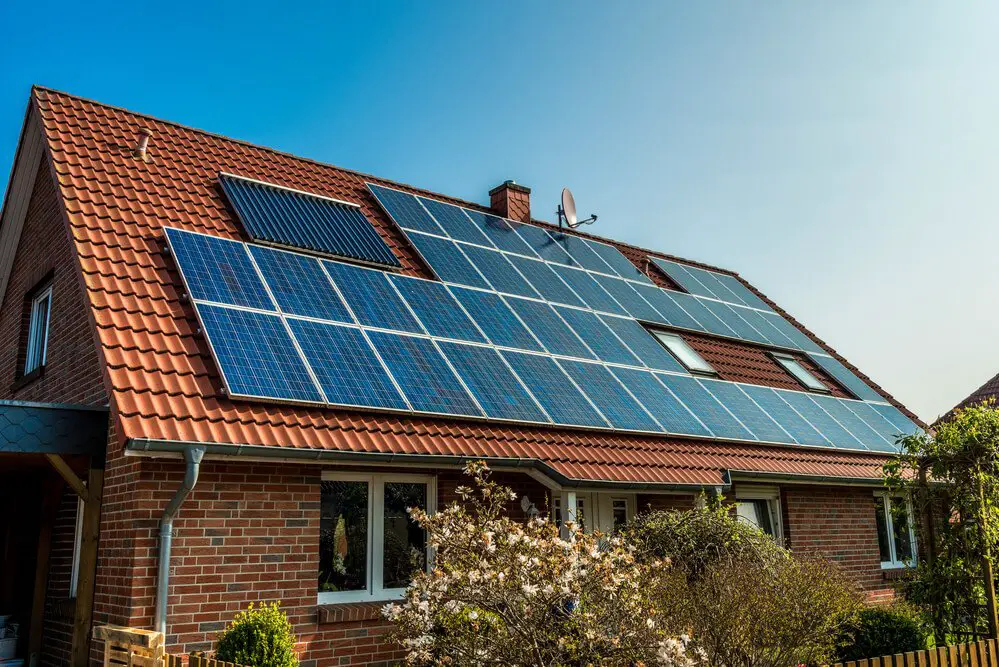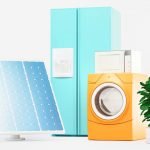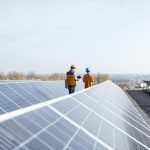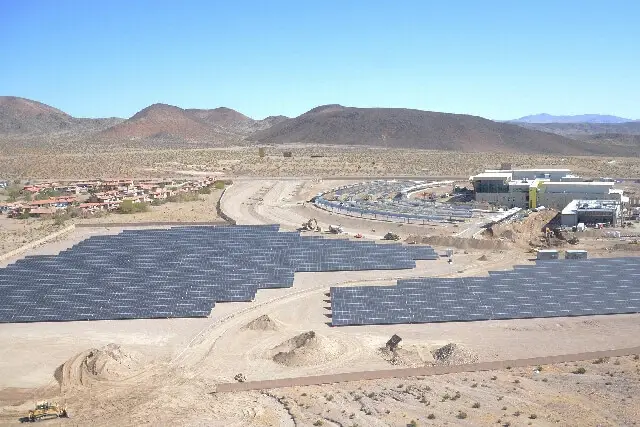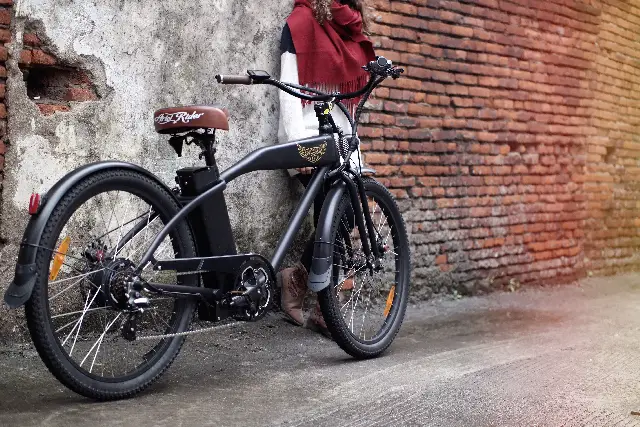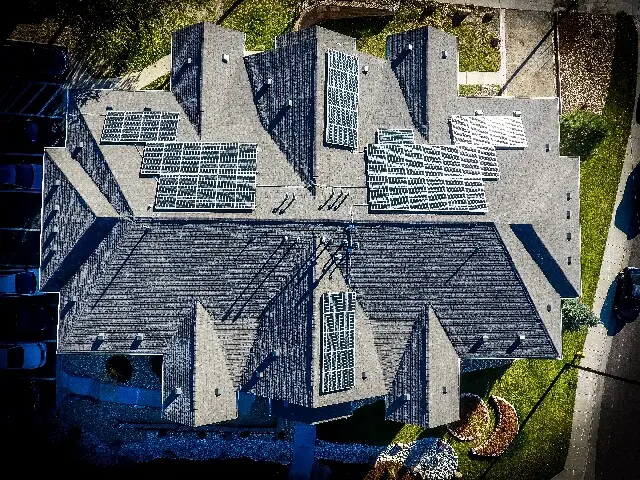Energy cannot be destroyed, it can only be changed according to scientific knowledge.
What will happen, then, if you don’t connect solar panels to any source? Are solar panels protected if left in that state and if so, where do the energy and power go?
In any case, a solar board produces a lot of voltage, but that voltage is then led to the panels.
With an increase in voltage, the solar panels will become hotter, though the phone surface can tolerate the heat.
Solar net meters cannot run until a power supply is connected to the framework.
Is It OK To Leave A Solar Panel Disconnected?
Indeed, solar panels can be detached without harming any segments.
Anyway, you need to remember the accompanying process prior to unplugging the panels.
Try not to unplug the solar panels during the daytime.
Delay until it is evening as a safety check.
The panels will consistently have power when the sun is out, so trust that sunset will separate the framework.
The bigger the solar cluster, the higher the voltage and force.
It isn’t unique in relation to any electrical part, so practice alert.
Utilize a multimeter to check the voltage prior to endeavoring to detach it.
Adhere to the maker’s directions for unplugging solar panels.
The means will shift contingent upon the plan, yet typically you need to utilize a screwdriver to eliminate the wires.
When the cables are taken out, the board is disengaged.
What Befalls Excess Solar Power Generated?
Solar panels consistently produce energy when the sun is out.
The energy is utilized to whatever resource is associated with the framework, yet what occurs if your panels produce more energy than is consumed?
In a grid-tied framework, abundant solar energy is shipped off the network where you can take advantage of it whenever you want.
The more additional energy you ship off the grid, the more credits you acquire that you can utilize later on.
This permits you to develop energy, so when winter comes, for example, you have accessible energy.
Off-network frameworks store excess power in batteries.
The battery capacity and capacity of batteries determine how much power can be stored.
As a result, you must calculate how much solar force should be utilized and how much surplus must be stored.
A battery bank is not needed if your frame is cabled.
Batteries offer an advantage, however, since they can be used in the event of an outage if you approach power.
You can’t use it. Due to the fact that the force organization turns off the solar panels in the event of a power outage, the solar panels are tied to the framework.
Regardless of whether you are on the network or off it, there are approaches to store extra solar force so it doesn’t get squandered.
It is only a matter of arranging that is required.
Is It Necessary To Unplug Solar Panels?
No, it isn’t. Most solar board establishments are not separated once designed.
There is no damage in unplugging the panels or turning them off.
However, it does not have many advantages.
The reason for a solar board is to give energy to control machines and gadgets.
On the off chance that you detach the modules, you need to trust that the panels will gather and change over energy very well.
Contingent upon the climate, this can require hours or days.
It is smarter to simply leave the panels associated and draw energy.
As we brought up, it is okay to allow the panels to heat up regardless of whether there isn’t anything associated with it.
Furthermore, on the off chance that you have solar panels introduced, it presumably consistently has a heap on in any case.
The solitary time it’s a good idea to disengage a solar board is in the event that you don’t anticipate utilizing it for quite a while.
If you are traveling for a little while, for instance, Or then again, you are expecting a snowstorm or hefty downpour for a few days.
On those occasions, you might select to unplug the panels.
Batteries can likewise be disassembled.
At the point when you plug them back into the framework, the charge ought to be the place where you left them off.
Given obviously you didn’t leave the batteries for a really long time.
Batteries will self-release ultimately, so don’t leave them unused for delayed periods.
Cover Solar Panels When Not In Use?
This is another matter that surfaces while examining what befalls solar panels when not being used.
Do you need to cover them or not? The appropriate response is that it depends.
Solar panels don’t really require a cover.
You can leave them in the sun, downpour, snow and they ought to be fine.
In any case, putting covers on solar panels gives benefits like keeping dust off.
Why You Should Cover Solar Panels
The greatest advantage of covering solar panels is to forestall soil development.
Assume you have been utilizing the panels the entire day.
The sun has set and you change to battery power.
Rather than forgetting about your solar panels that are presented to the components, you can cover them.
Putting a texture covering will keep soil, dust, bird droppings, foliage, and other flotsam and jetsam off the panels.
It makes cleaning simpler and speedier.
A clean solar framework will deliver more force, which is the thing that you need.
Solar board covers are likewise helpful throughout the colder time of year. A bit of a downpour isn’t awful.
Indeed, it is extraordinary for cleaning and eliminating soil.
In any case, a substantial, nonstop storm may cause harm and water could leak into the panels.
That could harm the panels hopelessly.
Covers are additionally valuable assurance against the snow.
Eliminating a few snowflakes can be bothersome, especially when you have a considerable solar array installed.
The PV modules can be kept free of snow by putting a cover on them.
Why You Should Not Cover Solar Panels
Furthermore, there are additional valid arguments against covering.
You are better off simply leaving the solar panels with no guarantees if it doesn’t snow or rain heavily in your area.
There will be no harm done by a little snow or rain from time to time.
It can be annoying to put and take off covers.
Imagine yourself in an RV.
It makes no sense to continually climb the rooftop to put on and take off the covers.
In addition, due to their size and area, enormous solar clusters such as those found in houses cannot be concealed.
Ultimately, most solar customers don’t cover their panels because they are designed to withstand a wide range of weather conditions, including heat, cold, rain, snow, dusty, dry, humid, etc.
Depending on where you live, covers are likely not necessary.
In Closing
Solar panels aren’t great, but they’re one of today’s most secure power sources.
The association, establishment, and structure do not need to be overburdened as long as they are done well.
